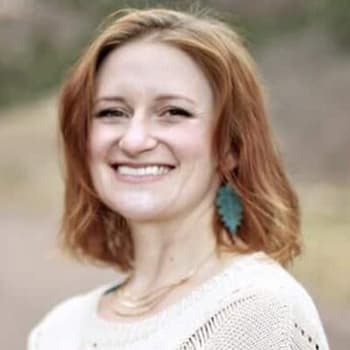
Methadone is a synthetic opioid that is typically used to reduce withdrawal symptoms of other opioids like heroin. Like bupenorphine, it is commonly used in medication-assisted therapy. It can be used in the short term for detox treatment or it can be used in the long term for recovery maintenance. When used in medication-assisted therapy, it blocks the effects of other opioids, and it also doesn’t give the user a feeling of euphoria that makes other opioids so addictive.
While methadone can be beneficial when used as directed and used as MAT, there are many negative aspects of being on methadone. For example, in most cases, patients must go to a methadone clinic to receive methadone. These clinics are known to be havens for all sorts of substance abuse, making it difficult for those with drug addiction issues to stay on the right path.
Most importantly, though, when a user takes methadone, he or she becomes much more dependent on the medication than even heroin. While the severe withdrawal symptoms for heroin last a few days to a week, severe withdrawal symptoms for methadone can last two to three months, making it extremely difficult to stop taking once it has been started.
What is Methadone?
In the mid-1900s, methadone was introduced as an alternative to morphine by German scientists. In 1947, Methadone was introduced in America as a pain reliever. It wasn’t used to treat addiction until the 1970s.

It's time to get your life back.
If you are struggling with addiction and co-occurring mental health, our expert team is here to guide you every step of the way. Don’t wait— reach out today to take the first step toward taking control of your life.
Methadone has been shown to help those who are addicted to other opioids. However, although it is effective in its reduction of withdrawal symptoms, methadone is incredibly addictive itself, and those who take it can quickly develop a methadone addiction. Users may develop a tolerance to the medication quickly, which may cause them to take larger doses. The medication can be lethal if abused.
While methadone treatment for those who are addicted to opioids has been somewhat successful. However, many healthcare professionals and researchers are seeing that the majority of patients who take methadone become addicted to it.
Signs of Methadone Use
Whether a patient is prescribed methadone by a medical professional or otherwise, the first time they take it, they will feel a sense of dizziness typically. This can often be accompanied by feelings of confusion or nausea. The other common side effects of methadone can include:
- Headache
- Weight gain
- Sore tongue
- Flushing
- Vision problems
- Sexual problems
- Problems falling or staying asleep
- Clamminess
- Weak muscles
- Weakness
- Constipation
- Nausea and vomiting
- Loss of appetite
- Dry mouth
- Sweating
- Problems urinating
- Missed menstrual periods
- Slower reflexes
- Trouble concentrating
While methadone does not typically produce the same high as other opioids, for some users, it cam produce a sense of light-headiness or sedation, particularly when combined with benzodiazepines.
Additionally, methadone can have severe sided effects such as:
- Seizures
- Rapid heartbeat
- Restlessness
- Difficulty breathing
- Fainting
- Swelling of the mouth including the tongue and throat
- Itching, hives or rash
- Nervousness
- Difficulty swallowing
- Feeling very drowsy
- Hallucinations
Methadone Overdose
Many people wonder if it’s possible to overdose on methadone. Yes, it’s definitely possible, and it’s actually a common issue. Methadone doesn’t cause the rush of euphoria caused by other opiates. However, it is relatively inexpensive so those who are addicted to other drugs may overdose when they are trying to achieve a high. Another common reason for methadone overdose happens when patients begin taking methadone and quickly develop a tolerance to the medication. When they have to take more and more, they may accidentally take too much.
It is a particularly dangerous drug because it builds up in the system and patients who take even a prescribed dose can overdose. As many as 4 out of every 10 overdose deaths from prescription painkillers are suspected to involve methadone.
Methadone Addiction Treatment
While coming off methadone is not as simple as coming off heroin or oxycodone, it can be done. If you are suffering from a methadone addiction, it’s important that you seek methadone treatment. The Recovery Village Ridgefield offers treatment for drug addiction in the form of medical detox, inpatient treatment, partial hospitalization and outpatient treatment. Convenient to Eugene, Oregon; Portland, Oregon and Seattle, Washington, The Recovery Village Ridgefield is an excellent choice for anyone who wants to begin their recovery journey. Give us a call today, and allow us to help you.



